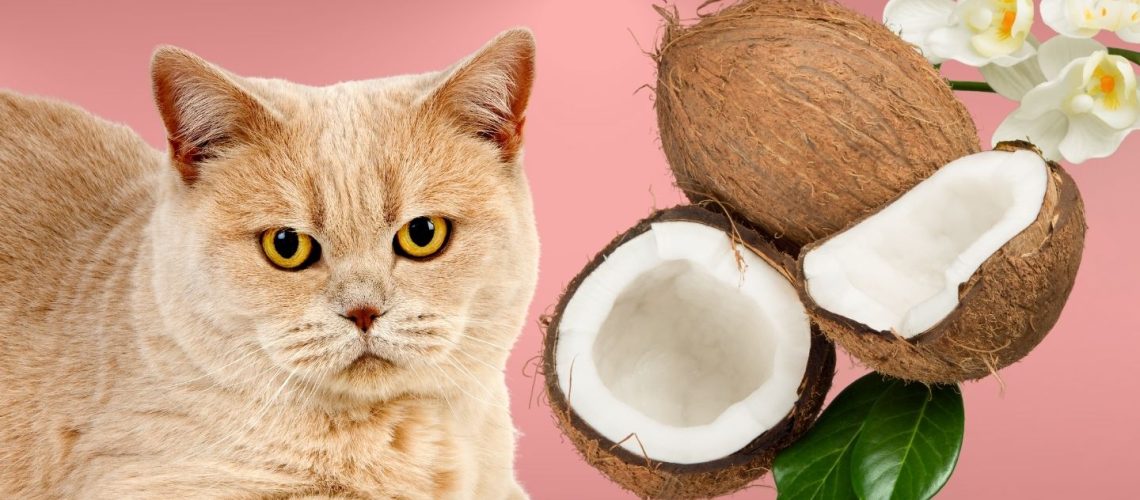The short answer is no, cats should not eat coconut. Coconut is not toxic to cats, but it is not a suitable food for them either. Coconut is high in fat and can cause gastrointestinal issues for cats, such as vomiting and diarrhea. Additionally, the hard shell of a coconut can be difficult for cats to digest and can cause choking or gastrointestinal blockages.
Introduction
Why Coconuts Are Popular Human Foods
Coconuts are highly popular human foods due to their unique taste and versatility. They can be consumed in various forms such as fresh, dried, or processed into oil, milk, and water. Coconuts are rich in nutrients, fiber, and healthy fats, which makes them a beneficial addition to human diets.
Coconut Products and Their Uses
Coconut products have become increasingly popular as people look for natural, healthful options in their diets. Coconut oil is often used for cooking or in beauty products, while coconut milk and water can be consumed as beverages or used in numerous recipes. These products are praised for their health benefits, but their suitability for cats is another matter.
Can Cats Eat Coconut?
Coconut Flesh and Its Effects on Cats
While the coconut flesh is not toxic to cats, it is also not suitable for them. The flesh is high in fat and can lead to gastrointestinal issues like vomiting and diarrhea if consumed by cats.
Coconut Oil and Its Effects on Cats
Coconut oil is not recommended for cats due to its high levels of saturated fat. Feeding cats, coconut oil can lead to weight gain and an increased risk of developing pancreatitis.
Coconut Milk and Its Effects on Cats
Coconut milk is high in fat and calories, which makes it unsuitable for cats. Additionally, some cats may find it difficult to digest, leading to gastrointestinal issues.
Coconut Water and Its Effects on Cats
Coconut water does not provide any significant nutritional benefits for cats, and it contains natural sugars that can add up to unnecessary calories. Cats also require specific nutrients and electrolyte balances not provided by coconut water.
The Nutritional Value of Coconut for Cats
Lack of Essential Nutrients for Cats
Coconut lacks essential nutrients, such as taurine, arginine, and arachidonic acid, necessary for a cat's health. Cats cannot synthesize these nutrients on their own, so it is crucial to provide them through their diet.
High Fat Content and Its Risks
The high-fat content in coconut can lead to weight gain and obesity in cats. This can result in various health issues, such as diabetes, hepatic lipidosis, and heart disease.
Cats as Obligate Carnivores
Cats are obligate carnivores, which means they need essential nutrients that can only be found in animal-based proteins. A diet containing coconut does not provide these nutrients, making it unsuitable as a primary food source for cats.
Potential Dangers of Feeding Coconut to Cats
Gastrointestinal Issues
Feeding coconut to cats can result in vomiting, diarrhea, and abdominal discomfort due to its high-fat content and potential difficulty in digesting.
Choking Hazards and Digestive Blockages
The hard shell of a coconut poses a choking hazard for cats, and if ingested, it can cause gastrointestinal blockages.
Allergic Reactions
Although rare, cats can develop allergic reactions to coconut or its products. If your cat shows any signs of an allergic reaction, such as itching, swelling, or difficulty breathing, contact your vet immediately.
Coconut-Containing Cat Treats and Supplements
Quality and Safety of Commercial Products
Some cat treats and supplements may contain coconut or its derivatives. These products are typically safe for cats as long as they follow quality and safety standards in their manufacturing.
How to Choose Coconut-Based Products for Your Cat
Always consult your veterinarian before introducing any new treats or supplements containing coconut. Ensure the products meet reputable and high-quality standards and are specifically formulated for felines.
Alternatives to Coconut for Cats
Healthy Treat Options for Cats
Cats can benefit from small amounts of cooked meat or fish as occasional treats. Other cat-appropriate treats include freeze-dried meat and fish treats or bite-sized commercial treats designed for cats.
Nutritional Supplements for Cats
If your cat requires nutritional supplements, consult your veterinarian for recommendations. Ensure the products are formulated specifically for cats to provide them with essential nutrients.
How to Feed Your Cat a Balanced Diet
Choosing the Right Cat Food
Feed your cat a high-quality, commercially-prepared cat food formulated to meet their nutritional needs. This should be predominantly meat-based, such as chicken, beef, or fish.
Proper Feeding Practices and Portions
Following the guidelines on the cat food packaging or your veterinarian's advice will help ensure you are providing the correct portions for your cat's weight, age, and activity level.
Foods to Avoid in a Cat's Diet
In addition to coconut, cats should also avoid foods like onions, garlic, chocolate, grapes, and raisins, all of which can be toxic.
Conclusion
In conclusion, cats should not eat coconut. While coconut is not toxic to cats, it is not a suitable food for them and can cause gastrointestinal issues. It is important to feed your cat a balanced diet that is high in protein and low in carbohydrates, and to avoid giving them human foods like coconut. Always consult your veterinarian if you have concerns or questions about your cat's diet.











